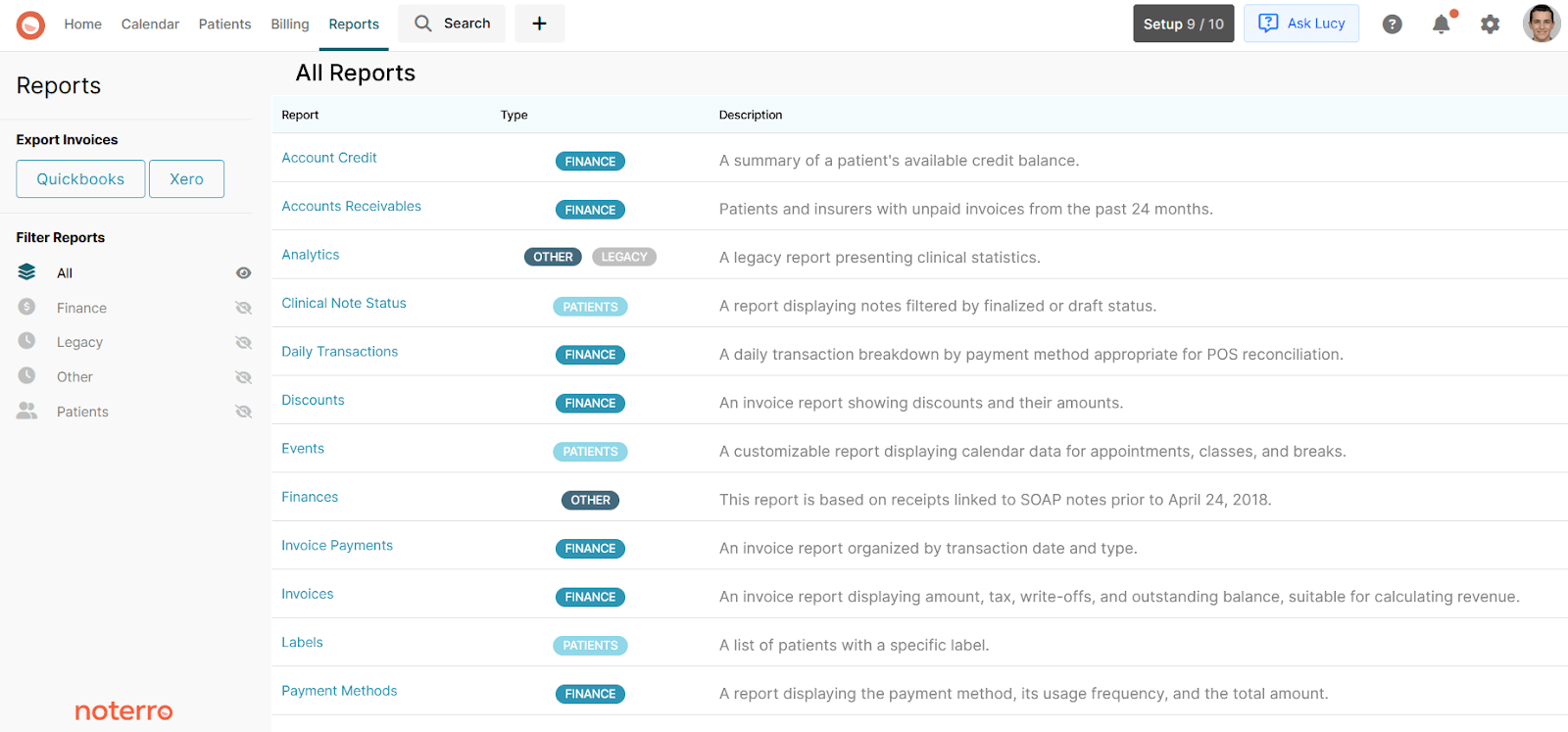End-of-Year Sale: Subscribe by December 31 to Get 3 Months Free!
Learn More
Table of Contents

Experience Better Practice Management Today!
Starting at $28.05/month
No Credit Card Required

Experience Better Practice Management Today!
Starting at $30/month
No Credit Card Required
Graduation is just the beginning of your journey. Your degree provides the foundation, but actual growth happens in the clinic, with each patient, and through every challenge.
In my experience, the most successful practitioners never stop learning. Education isn't a destination but a continuous path of improvement.
In this blog, I’ll show you how continuous learning transforms your practice:
By the end, you’ll see how lifelong learning isn’t extra, but the edge that keeps your clinic thriving.
Healthcare changes fast; new studies, new tools, new expectations. What worked five years ago might already be outdated. Lifelong learning is how you stay relevant, confident, and trusted, no matter how much the industry evolves. Here’s why staying curious pays off.
Therapeutic techniques evolve constantly. Patients don't want yesterday's approaches - they want evidence-based care that shows you're at the forefront of medical knowledge. Continuous education ensures your methods reflect the latest research, keeping you ahead. This ongoing learning prevents professional complacency. It's how you deliver the care patients will remember and recommend.
Professional growth is your protection against burnout. You're building resilience into your practice by learning new treatment modalities, mastering digital tools, and improving documentation skills. Each new skill adds flexibility. When a patient needs a shift or a regulations change, you'll be prepared, not panicked.
Patients are perceptive. They can instantly tell when a practitioner is genuinely growing. When your advice reflects current research and you use advanced tools, you build trust beyond a single appointment. Clients feel safer knowing their healthcare provider is committed to continuous improvement.
Learning separates innovative practitioners from those stuck in old patterns. It provides perspective, enhances problem-solving skills, and gives you an edge in a rapidly changing healthcare environment. Practitioners who keep learning don't just adapt to change - they lead through it.
Learning keeps work meaningful. It breaks routine and reminds you why you started. New techniques, courses, and peer connections keep your work meaningful and exciting.
Bonus read: Stop Patient Poaching: How to Protect Your Clinic From Ex-Staff
In healthcare, standing still means falling behind. Your diploma was just the first step, not the destination. Lifelong learning keeps your skills sharp, your decisions informed, and your career adaptable. Here's where to focus your energy for meaningful growth.
Understanding healthcare compliance isn’t just an administrative task but a safeguard for your career. Rules around privacy, consent, and insurer documentation evolve every year. So, knowing them well protects both you and your patients.
Continuous education in this area ensures your clinic operates ethically and legally.
A trusted clinic management software, like Noterro, simplifies compliance with encrypted storage, two-factor authentication, software activity audit, and role-based access controls. That means you can focus on patient care without worrying about policy gaps or data risks.
Related read: How to Protect Your Patient Data with HIPAA-Ready Security
Learning how to use digital tools is now as important as learning new treatment techniques to make your operations efficient. Use a practice management software like Noterro to organize appointments, manage billing, chart faster, and secure patient communication. Continuous learning in tech doesn’t just simplify your day; it builds efficiency that compounds over time, creating more room for professional growth.
Your ability to explain treatments clearly, discuss costs confidently, and manage professional relationships determines your long-term success. The clearer your communication, the more patients stay engaged and compliant with treatment plans, leading to stronger outcomes and better retention.
Think of it this way: Your clinical expertise opens the door, and your communication and business skills keep patients walking through it.
If you’re a chiropractor reading this, you’ll like this: How Chiropractors Can Simplify Treatment Progress Tracking and Communication
Lifelong learning doesn’t happen alone. Joining associations, discipline-specific groups, attending workshops, or connecting with peers builds exposure to new ideas and shared experiences. Peers can offer practical insights that no textbook covers. Mentorships and collaborative learning also expand your perspective on clinic management, documentation, and patient communication.
Connect with peers at your professional level. They understand your workload, stress, and victories. This support system provides practical advice on everything from patient communication to documentation habits.
Collaborative learning strengthens your clinic management skills. You'll gain nuanced insights that no manual could teach - practical strategies from shared experiences.
Clinical expertise might draw patients in, but financial understanding keeps your practice alive. Most practitioners learn this the hard way; I'm offering you a shortcut.
Financial literacy is about strategic decision-making, not just numbers. Learning to read reports, plan budgets, and allocate resources efficiently transforms your practice from surviving to thriving.
Continuous education in financial management sharpens your professional instincts. You'll know precisely when to expand, invest, or pivot. Tools like Noterro turn complex financial data into clear, actionable insights.
Every booking, claim, and invoice connects to a report telling your practice's story. Through reports, you can track revenue trends, the most effective payment method, popular services, and more to understand exactly where your time generates maximum value.

You might also like: Stress-Free Billing for Solo & Mobile Clinics: Guide to Tips & Tools
Years in healthcare taught me one thing: great clinics aren't built on skills alone. They're built on leadership that sees people, not just roles.
Leadership is more about creating a space where every team member can grow. This means understanding individual strengths, setting clear expectations, and providing genuine support beyond weekly meetings.
The most powerful leadership skills are surprisingly simple: emotional intelligence and clear, honest communication. It is important to offer feedback that helps people improve, not just critiques that deflate their spirit.
Intentional learning keeps you adaptable. Your commitment to continuous improvement becomes your most reliable strategy as healthcare shifts and changes.
Specialization is your professional weapon. Advanced certifications in chronic pain management, sports therapy, or prenatal care transform you from a generalist to a precision expert. Real growth is about ruthlessly refining your existing skills, sharpening your assessments, and tightening your communication. Every incremental improvement builds your professional edge.
Your expertise grows not through massive leaps, but through consistent, focused refinement. Stay hungry. Stay curious.
My years in healthcare taught me one brutal truth: standing still means falling behind. Each new technique, each updated tool, becomes a weapon in your clinical arsenal. Invest in your skills like they're the most important asset you have—because they are. Patients don't just want competence; they want practitioners who are committed to constant growth.
With the right systems in place, like Noterro, you can focus your time and energy on growth, not on the admin that slows you down. When you automate the basics, you free yourself up to keep learning, improving, and elevating your practice.
Your future isn't defined by what you know today. It's shaped by your hunger to learn, adapt, and push beyond your current limits. So, start learning!
Start with areas that directly improve daily workflow—communication, documentation accuracy, and modern patient management tools. These give fast, noticeable improvements in both patient experience and confidence.
Start by identifying one or two areas you want to grow in each year. Space out your learning—choose short workshops, online courses, or mentorships that fit your weekly schedule instead of long, intensive programs. Learning is most effective when it’s consistent, not rushed.
Look for free or low-cost webinars from professional associations, subscribe to credible journals, and join online practitioner communities. Peer discussions often teach more practical lessons than formal education.
Lead by example. Share what you’ve learned, hold quick team discussions, and reward curiosity. Even five minutes a week spent sharing ideas or reviewing patient cases can make learning part of your clinic’s culture.
Tags



